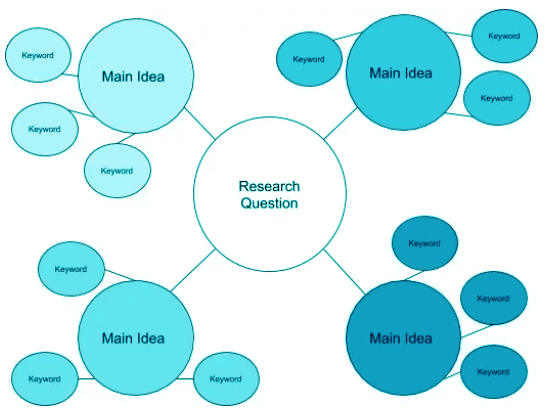Finding and Organizing the Information You Need to Answer the Question Chapter Notes | AP Research – AP Students - Grade 11 PDF Download
Introduction
This chapter focuses on the initial steps of researching for your AP Research project. It emphasizes using personal experiences and assumptions to guide your inquiry and encourages questioning existing knowledge to deepen understanding. The chapter introduces concept mapping as a tool to visualize and organize thoughts related to the research question. It highlights the importance of connecting new information to what you already know and exploring how your research question may challenge or confirm your beliefs.
Formulating Research
Now that you have a clear idea of what you wish to investigate, it’s time to dive into the research!
To gain a deeper understanding, it's essential to question your current knowledge, identify gaps in your understanding, and relate new information to what you already know.
Often, we overlook our most significant source of knowledge. While Google is a helpful tool, the most substantial reservoir of information is your own brain!
Personal Experiences
Reflect on your research question and your personal experiences related to it. Consider whether you have any assumptions tied to your question and what cultural contexts may influence your perspective. The most insightful research often stems from personal beliefs, assumptions, and experiences.
For instance, let’s revisit the example of a peanut butter and jelly sandwich. From your personal experience, you might note that they contain high sodium levels. This insight can lead to a broader investigation, such as studying sodium's effects on productivity in model organisms and extrapolating these findings to human contexts. It doesn’t have to be overly scientific!
Concept Mapping
Visualizing your research question can be beneficial. Try creating a concept map to organize and connect your ideas effectively.
An example is shown below:

Your research question may either challenge or affirm your existing beliefs and understandings. This exploration is what makes research exciting! It is an opportunity to delve deep into your knowledge and the world around you.
Remember, you are capable of this! Enjoy your research journey!
Key Terms
Research Question: A research question is a well-defined inquiry that focuses a study, serving as the foundation for exploration and investigation. It shapes the research process by establishing context, purpose, and scope, and it helps formulate arguments and assess evidence throughout the research.
FAQs on Finding and Organizing the Information You Need to Answer the Question Chapter Notes - AP Research – AP Students - Grade 11
| 1. What is a research question and why is it important in a study? |  |
| 2. How can I formulate a good research question? |  |
| 3. What are some examples of effective research questions? |  |
| 4. What are common mistakes to avoid when developing a research question? |  |
| 5. How does a research question impact the research process? |  |




















